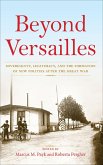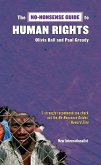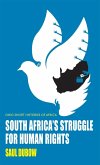Landmark study of the African Charter on Human and Peoples' Rights, one of the most important documents in modern African history, that positions it within the African Lives Matter struggle to assert an African identity rather than as simply a human rights document. Describes its underlying African origins and how the principles of the OAU influenced its path and content.
The African Charter on Human and Peoples' Rights (ACHPR), which was proposed in 1979, adopted in 1981 and came into effect in 1986, was the first non-Western declaration of human rights and the first official statement of an African human rights perspective. With Africa largely absent in 1948 when the Universal Declaration of Human Rights (UDHR) was adopted, it stands in stark historical reproach to the Western conception of universal human rights as a pivotal document in the decolonisation of the continent. This book, for the first time, presents a comprehensive account of the development of the ACHPR, which is key to a proper understanding of its fundamental nature. Through documenting its process of construction, it becomes possible to understand how Africans themselves understood the process and the issues involved and how the ACHPR became a political text asserted by African leaders and not a continuum of a so-called universal human rights tradition. The result is a radical repositioning of the underlying context of the ACHPR, one of the most important documents in modern African history, of how it came to be and how it should therefore be understood.
Volume 1 outlines the dominant African political and cultural ideas of the time and their symbiotic relationship with the principles and politics upon which the OAU (now African Union) was founded and upon which it functioned. It thereby draws out the path the ACHPR process was obliged to follow and the influence of the existential desire to counter neo-colonialism in all its forms that helped bring it into being and shaped its content.
The African Charter on Human and Peoples' Rights (ACHPR), which was proposed in 1979, adopted in 1981 and came into effect in 1986, was the first non-Western declaration of human rights and the first official statement of an African human rights perspective. With Africa largely absent in 1948 when the Universal Declaration of Human Rights (UDHR) was adopted, it stands in stark historical reproach to the Western conception of universal human rights as a pivotal document in the decolonisation of the continent. This book, for the first time, presents a comprehensive account of the development of the ACHPR, which is key to a proper understanding of its fundamental nature. Through documenting its process of construction, it becomes possible to understand how Africans themselves understood the process and the issues involved and how the ACHPR became a political text asserted by African leaders and not a continuum of a so-called universal human rights tradition. The result is a radical repositioning of the underlying context of the ACHPR, one of the most important documents in modern African history, of how it came to be and how it should therefore be understood.
Volume 1 outlines the dominant African political and cultural ideas of the time and their symbiotic relationship with the principles and politics upon which the OAU (now African Union) was founded and upon which it functioned. It thereby draws out the path the ACHPR process was obliged to follow and the influence of the existential desire to counter neo-colonialism in all its forms that helped bring it into being and shaped its content.
Dieser Download kann aus rechtlichen Gründen nur mit Rechnungsadresse in A, D ausgeliefert werden.

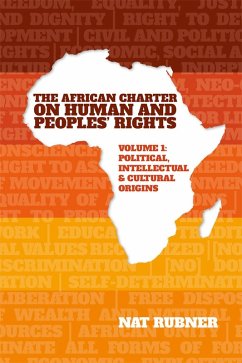

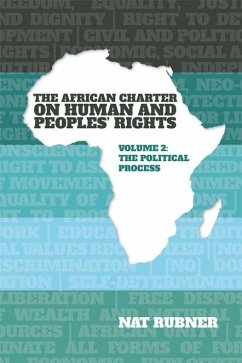
![The African Charter on Human and Peoples' Rights [2 volume set] (eBook, PDF) The African Charter on Human and Peoples' Rights [2 volume set] (eBook, PDF)](https://bilder.buecher.de/produkte/68/68975/68975541m.jpg)
